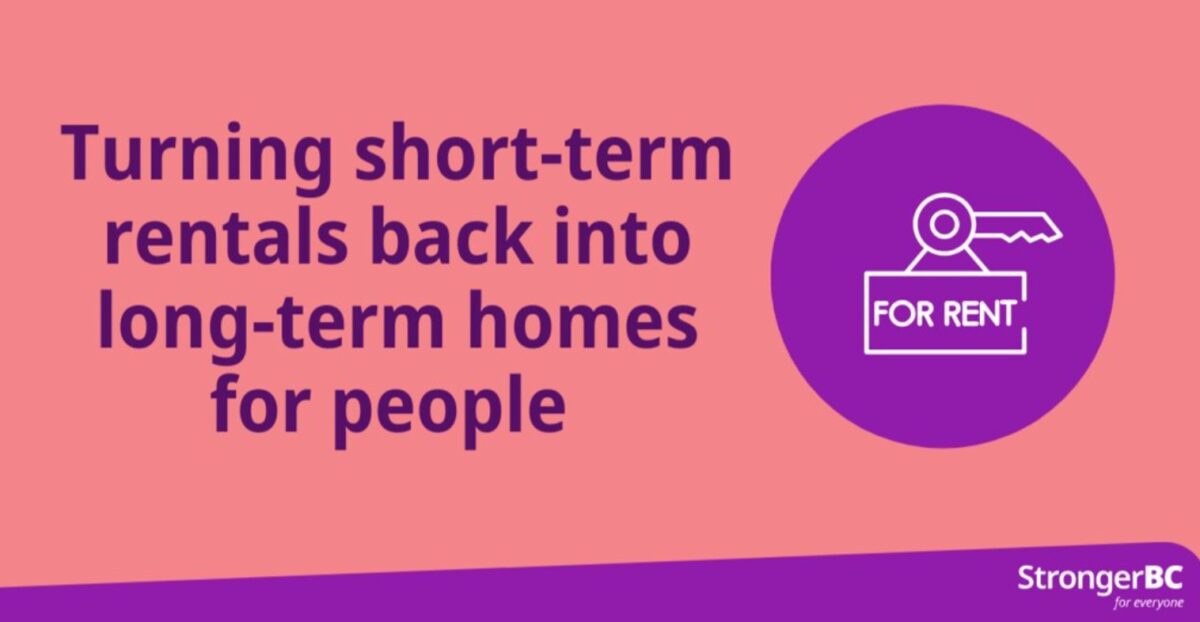The Short-Term Rental Accommodations Act in British Columbia (B.C.) has been enacted in response to the rapid expansion of short-term rentals. This includes properties listed on platforms like Airbnb, VRBO, Expedia, and FlipKey. The Act aims to address the challenges posed by the diversion of long-term rental properties into the short-term rental market. It is intended to regulate and manage this sector effectively. Below are the key components and provisions of the Act:
1. Strengthening Local Government Tools:
- Increased Fines and Tickets. The maximum fine for bylaw offenses related to short-term rentals will increase from $2,000 to $50,000 for regional districts. This aligns with the maximum fines for municipalities.
- New Business Licensing Authority for Regional Districts. Regional districts will have the authority to regulate and license short-term rentals and other businesses. This would be similar to municipalities.
- Display of Business License. Hosts operating STR in regulated areas are required to display a valid business license number on their listing.
- Platform Accountability. STR platforms are required to remove listings that do not include a valid business license.
- Data Sharing. Short-term rental platforms will be required to share information about short-term listings with the Province. The information shared with local governments will remain confidential.
2. Returning Short-Term Rental Units to the Long-Term Rental Market:
- Principal Residence Requirement. Short-term rentals are limited to the host’s principal residence and one secondary suite or accessory dwelling unit. Some areas or types of accommodation may be exempt from this requirement.
- Local Government Opt-In and Opt-Out. Local governments can choose to opt into or out of the principal residence requirement based on their specific needs and vacancy rates. Local municipalities with high vacancy rates can choose to opt out of the principal residence requirement.
- Exempt Communities: Communities with populations over 10,000 or adjacent to larger communities are subject to the principal residence requirement.
- Exempt Accommodation Service Providers. Hotels and motels are exempt from these rules, and future regulations will define additional exemptions. Examples of this are timeshares and fishing lodges.
- Changes to Non-Conforming Use Protections. Protections for non-conforming use of property will no longer apply to short-term rentals, ensuring compliance with local rules.
3. Provincial Oversight:
- Provincial Registry: A short-term rental registry established to ensure compliance with the rules. Hosts must include a provincial registration number on their listings.
- Provincial Compliance and Enforcement Unit: A unit established to track compliance, issue orders, and administer penalties for violations.
Timeline: Different provisions of the Act will come into effect at various times over the next two years. Increased fines and tickets will take effect immediately. The principal residence requirement implemented on May 1, 2024. The launch of the provincial registry will be in late 2024.
These regulations aim to address the housing crisis in B.C. and ensure the effective management of the short-term rental market. There is focus on returning homes to the long-term rental market. Equally important, by providing more tools for the local government with more tools to enforce.
For more information about the New Changes or to view the current Operator’s Guide and the process visit: New rules for short-term rentals – Province of British Columbia (gov.bc.ca) & ‘The City of Kelowna’ website for short-term rental operators. The Province and City is constantly amending short-term rental bylaws and it is important to keep up to date.
_
Speaking to a professional about the short-term rental regulations is essential. Please always verify the accuracy of this information through your own due diligence. Nicole McWilliams will assume no responsibility or liability for the accuracy of the information within.
I would love to be your Real Estate Agent of Choice!

EVERYONE needs a home to live in. I continue to be confident in the Canadian Real Estate Market. I recommend taking a peek at our current listings on the market.
Do not hesitate to contact me directly by email or phone to discuss all your real estate needs!
Warm Wishes;
Nicole McWilliams
Sage Executive Group Real Estate
250.808.3125 | nicolemcwilliamsproperties@gmail.com
“making the valley home”

